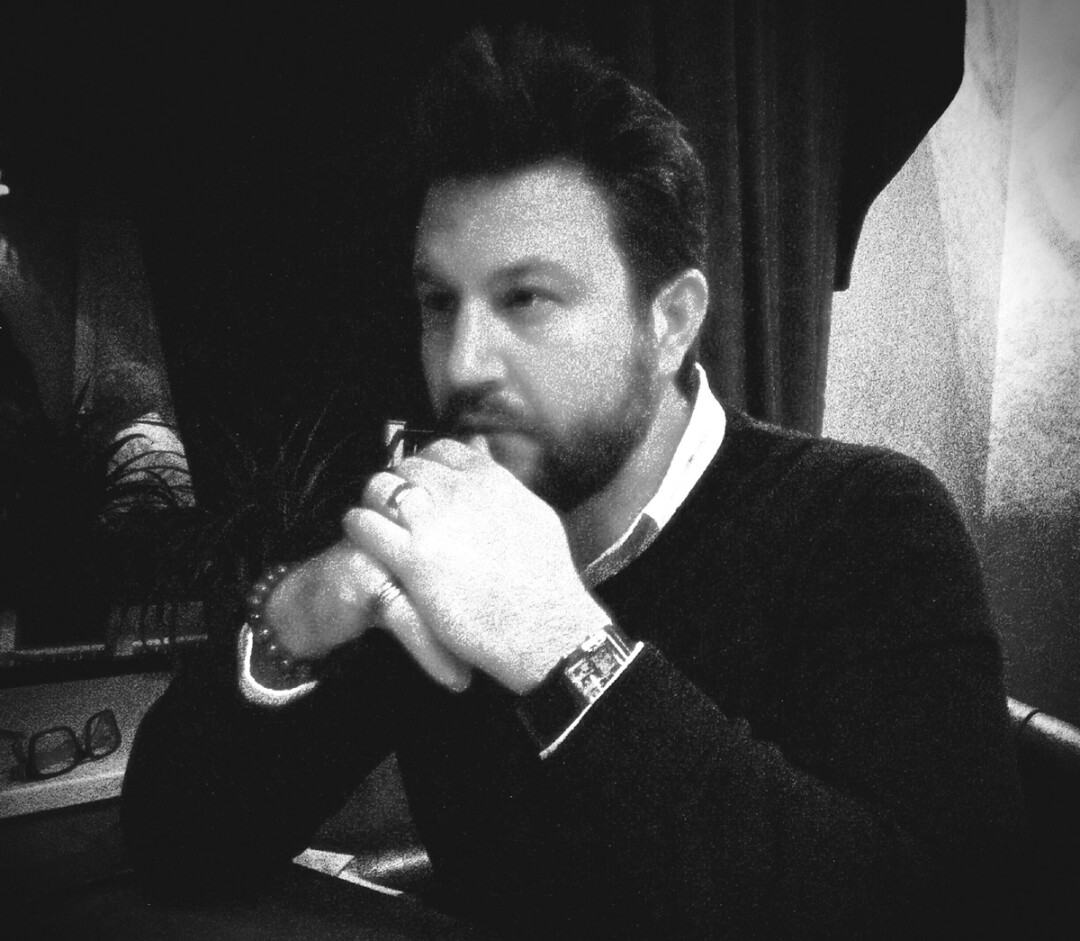Turning Sap to Syrup
Katsura expertly whittles experiences down to words

One question. That’s all I’ve got. After reading Jason Splichal’s latest book of poetry, Katsura, there’s just one thing I have to know.
Splichal, a legendary Eau Claire South Middle School English teacher and author of five previous books of poetry, agrees to meet in Boyd Park, which will be the unusual location of his upcoming book release performance and signing. It is believed to be the first candlelit poetry reading (with complimentary hot chocolate and cider) in the Boyd Park warming house’s storied history.
As for the high stakes, all-encompassing, one-question interview format, he’s up for the challenge.
The book, subtitled Spare Parts, Broken Hearts, and B-Sides, is exactly what the title implies: An assortment of odds and ends that didn’t fit in his previous books, re-workings of previously published poems, and never-before-seen material. Splichal has won awards for his poems for good reason. Each line reads like it was pounded out by a blacksmith … one who also happens to be a Buddhist monk.
Consider the following:
From “Lake Motosuko”: “Our voices skip like stones / Across the lake”
Also from “Lake Motosuko”: “Our smiles stretching light years / Around the slender curve of the cosmos / Then unraveling like a spool of ribbon / Cut and curled with the dull arm of a scissors”
From “Theorem of Angles”: “And the pounding waves / Wash the language / From your lips.”
From “John the Baptist,” in which once-clear water is described as “thick and heavy / Saturated with the sediment of sin”
From “The Future of History,” where cellphone users “flit like hummingbirds / from app to app”
When we meet at Boyd Park, I reference the above lines before dropping the make-or-break question, and that question is this: “How do you come up with this stuff?”
Somewhat bemused, he struggles to answer, going down some verbal dead-ends before giving up. “These are observations or experiences … I don’t know,” he says.
“What do you mean ‘How do you come up with it’?”
This isn’t good. My one-question strategy is sinking fast. I counter that these lines aren’t generic observations. He’s tapped into something where he can take observations and boil them down to the most specific, original, profound, and creative images.
“Well that’s what it is,” Splichal says, and the interview gets some traction. “Oddly enough, the process is a lot like making maple syrup.”
He pauses.
“There are trees all around you, and each tree can be tapped for its sap. So the raw stuff of poetry is everywhere, and I guess once you tap those trees, once you tap those experiences that are waiting to be had everywhere around you, the hard work begins in boiling down that sap to a syrup. It’s time-consuming. It’s laborious. That’s the craft of poetry: Boil those experiences down, refine them, evaporate all the unnecessary words, evaporate all the ego, and I think what’s left is this elemental sweetness.”
For humor’s sake, Splichal takes the analogy further, joking about the toll of the creative process: “It takes hours and hours of constant stirring – over a roaring fire. You smell like smoke when you’re done, and you can barely bring yourself to put it on pancakes …”
Writers are often asked where their ideas come from. I’ve heard that question is the bane of every book tour. The consumer doesn’t need to see behind-the-scenes to enjoy the final product – whether it’s a book or a plate of flapjacks smothered in syrup. Just dig in.
But as a teacher, Splichal serves as a writing evangelist, inviting students to find their voices – and themselves – in the writing process. And in true teacher fashion, Splichal leaves the last page in Katsura to the reader. It’s blank, except for the title: “Your First/Last/Next Poem Here:” With this invitation, he turns the book’s ending into someone else’s beginning.
 “The biggest hurdle with writers is that they don’t feel like they have the time, the space, or the permission to write,” Splichal says. “It’s my hope that after reading these, someone is inspired to do some writing. There are no excuses. The time is now; the space is here.”
“The biggest hurdle with writers is that they don’t feel like they have the time, the space, or the permission to write,” Splichal says. “It’s my hope that after reading these, someone is inspired to do some writing. There are no excuses. The time is now; the space is here.”
It’s both simple and difficult. It’s also fitting. Katsura – like all books – started as a blank page, full of possibilities, waiting to be written.
Katsura is available at The Local Store and Crossroad Books. The Katsura book release event will be Friday, Dec. 11, from 7-8pm at the Boyd Park shelter with an indoor candlelight performance + book signing + free hot chocolate and apple cider.


















